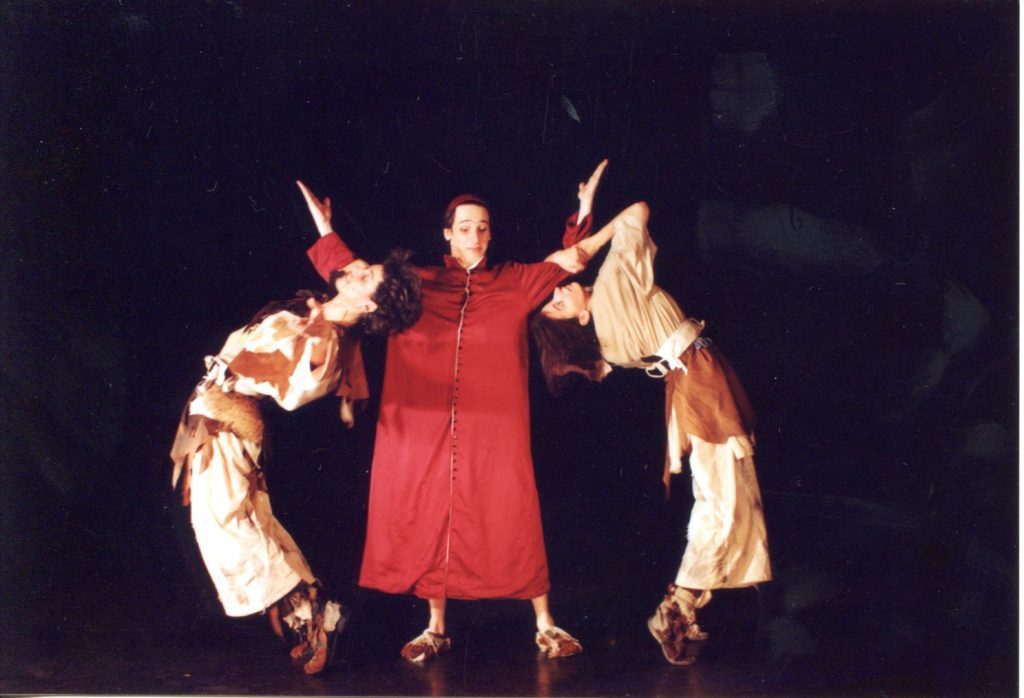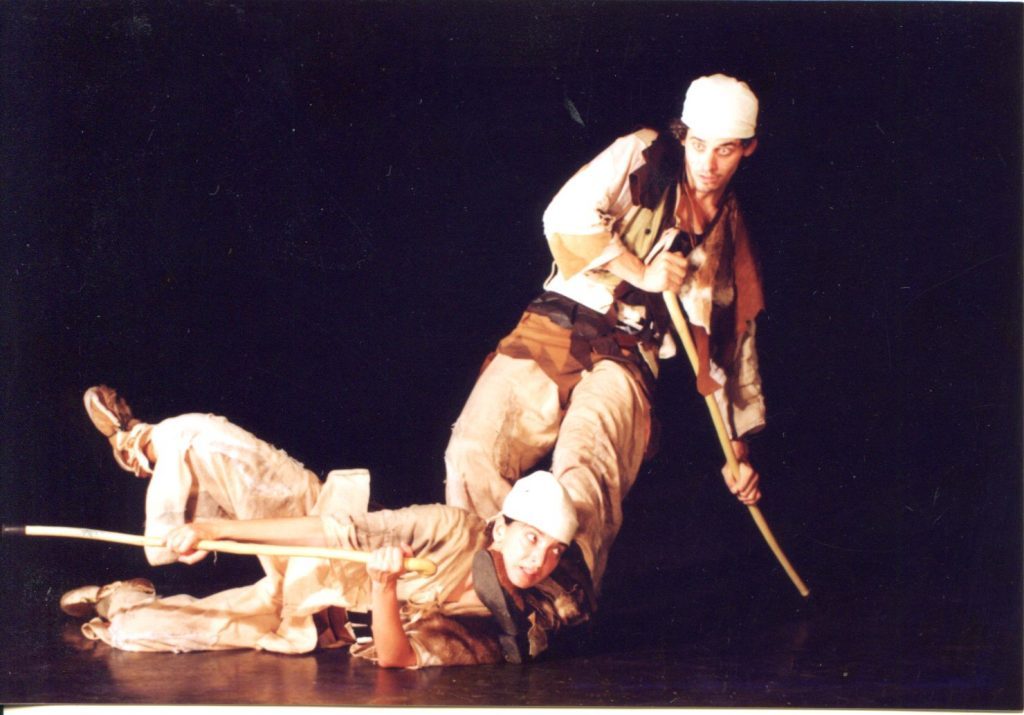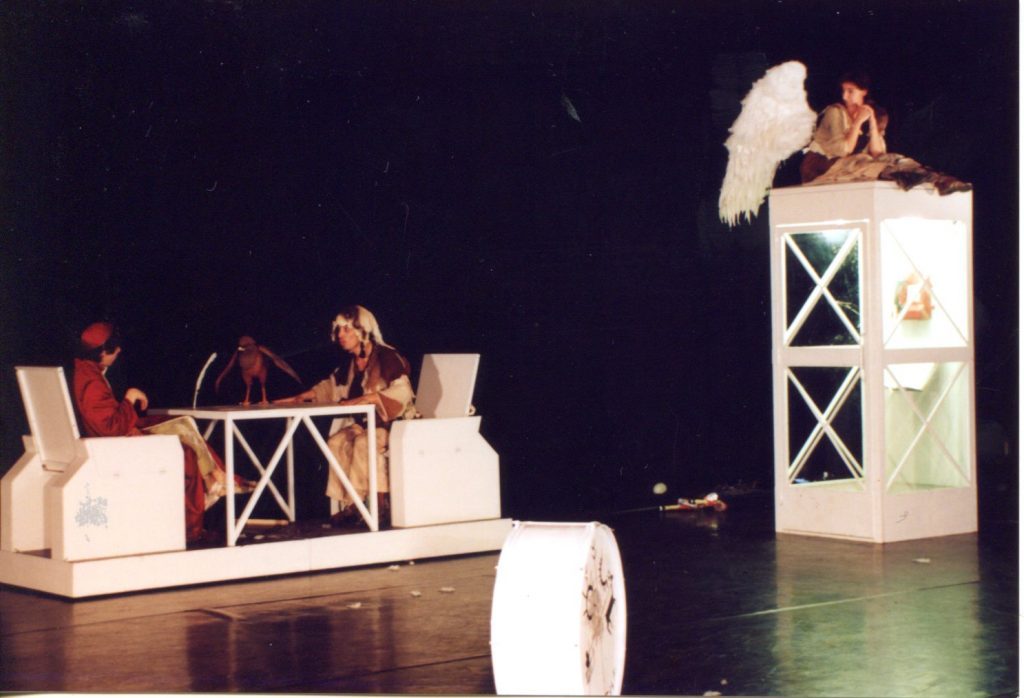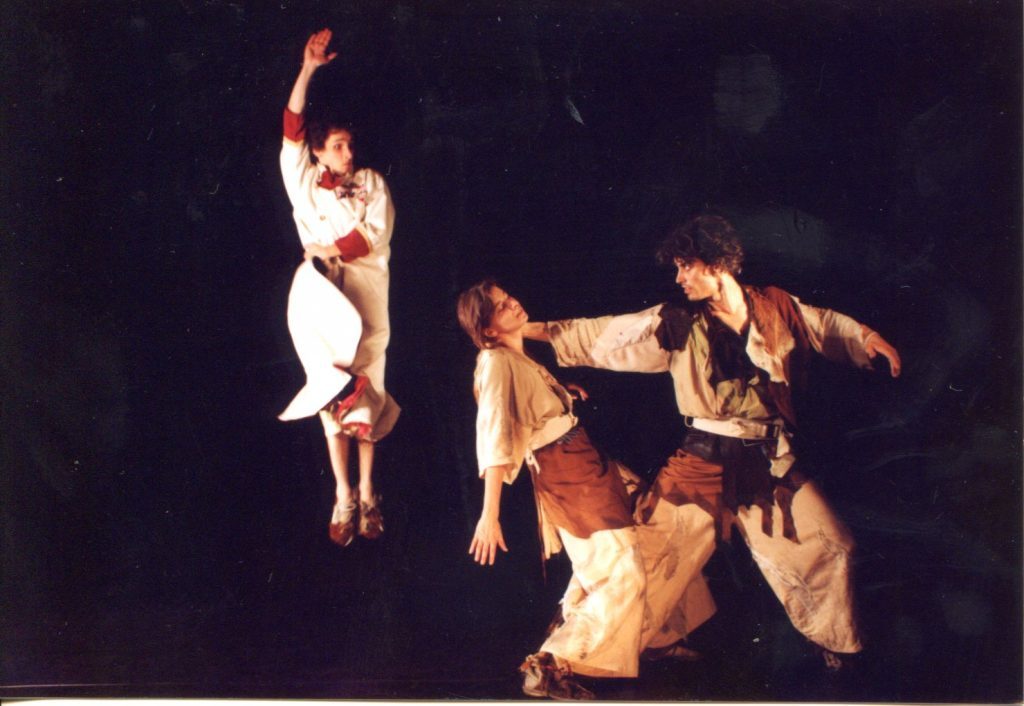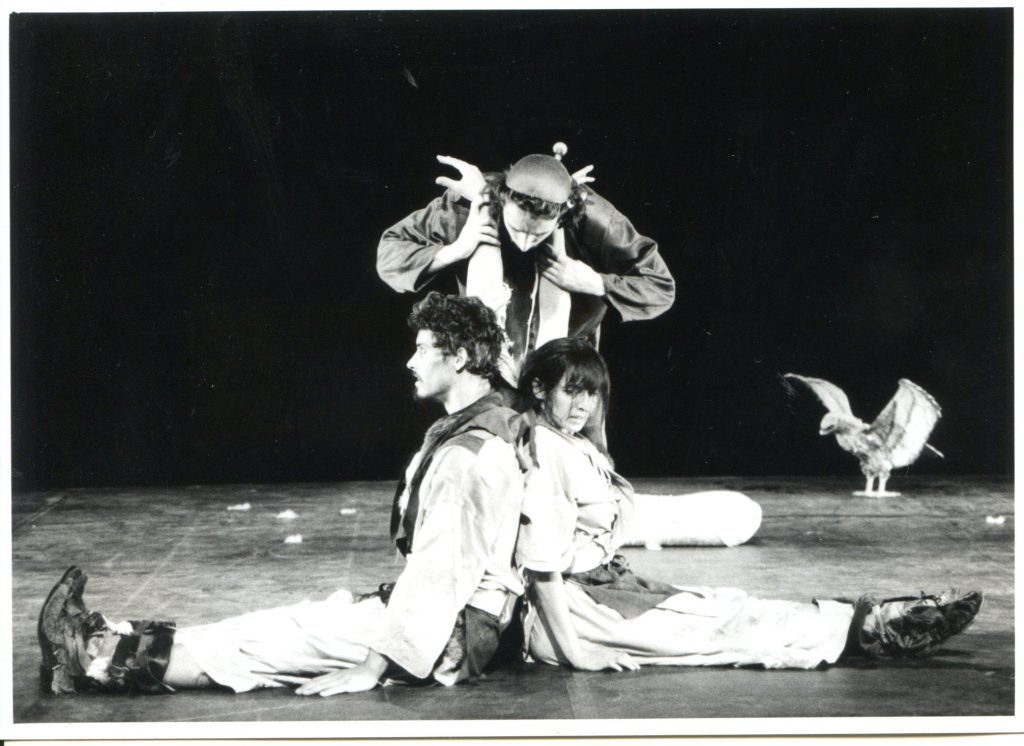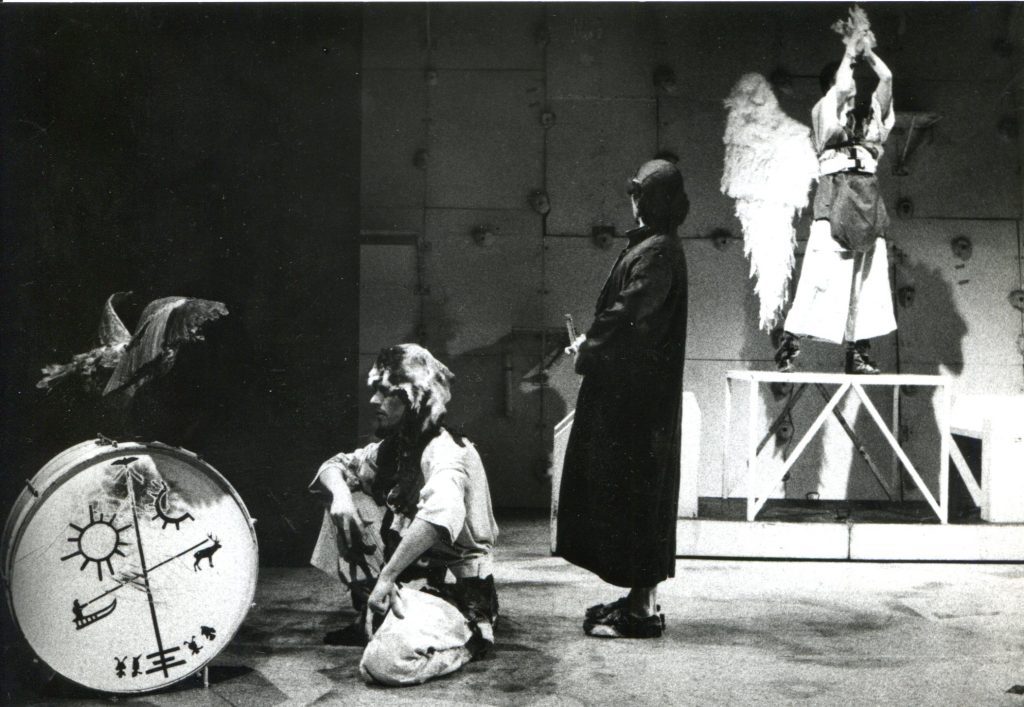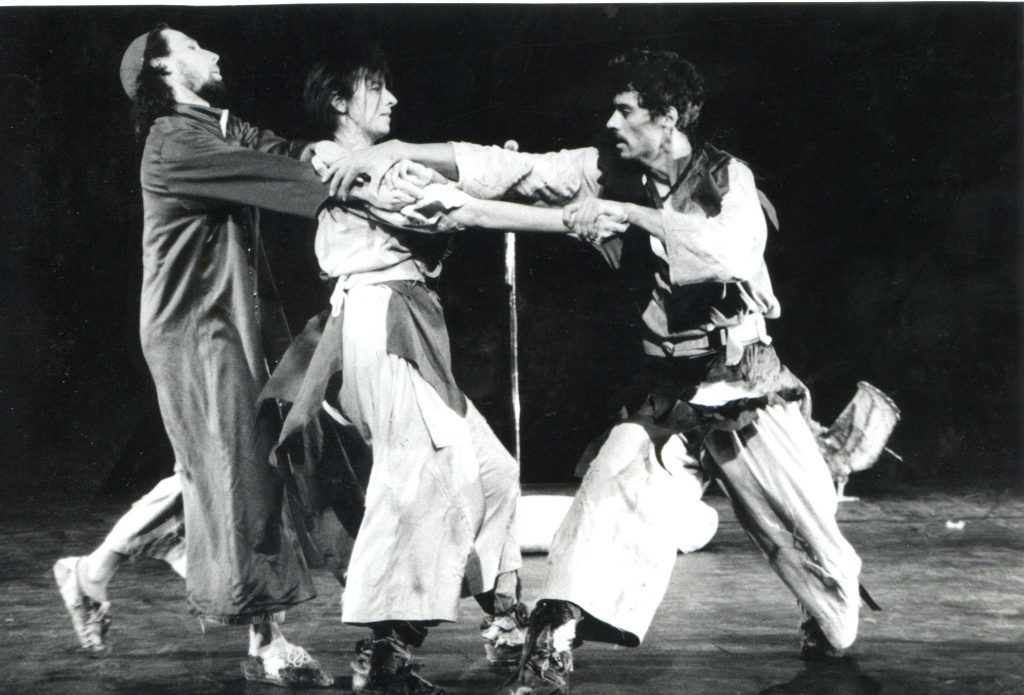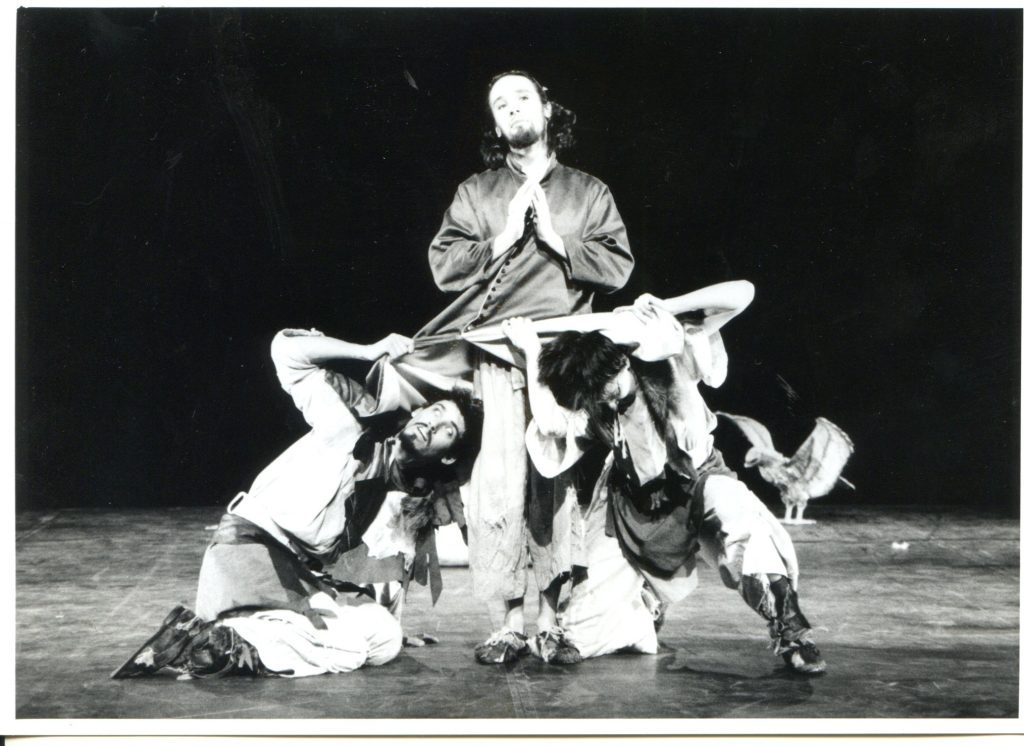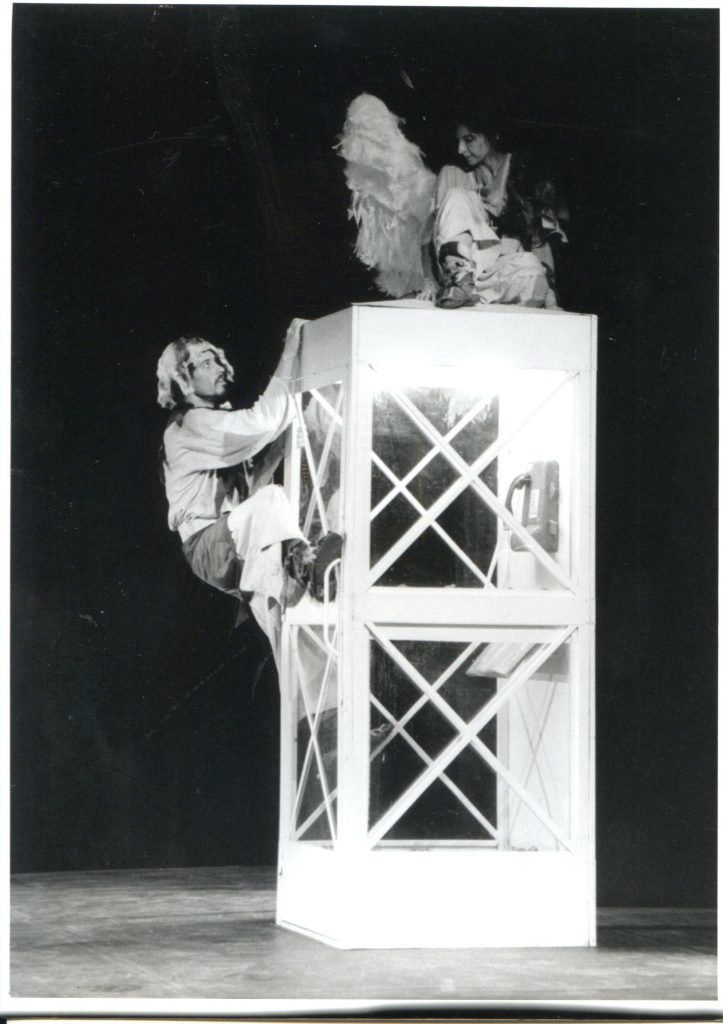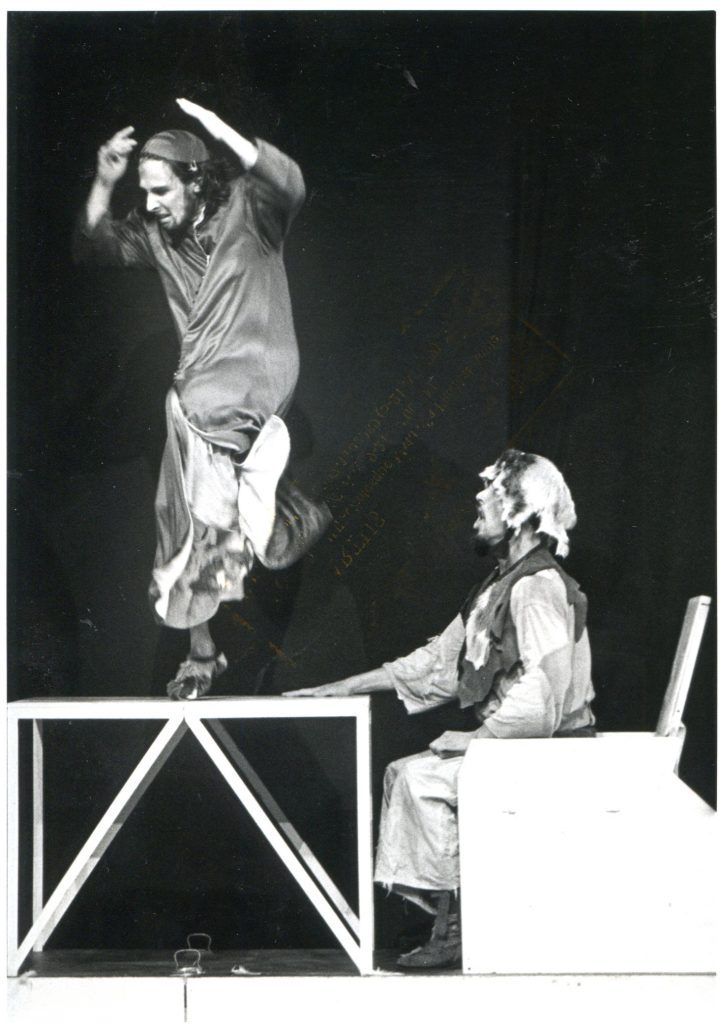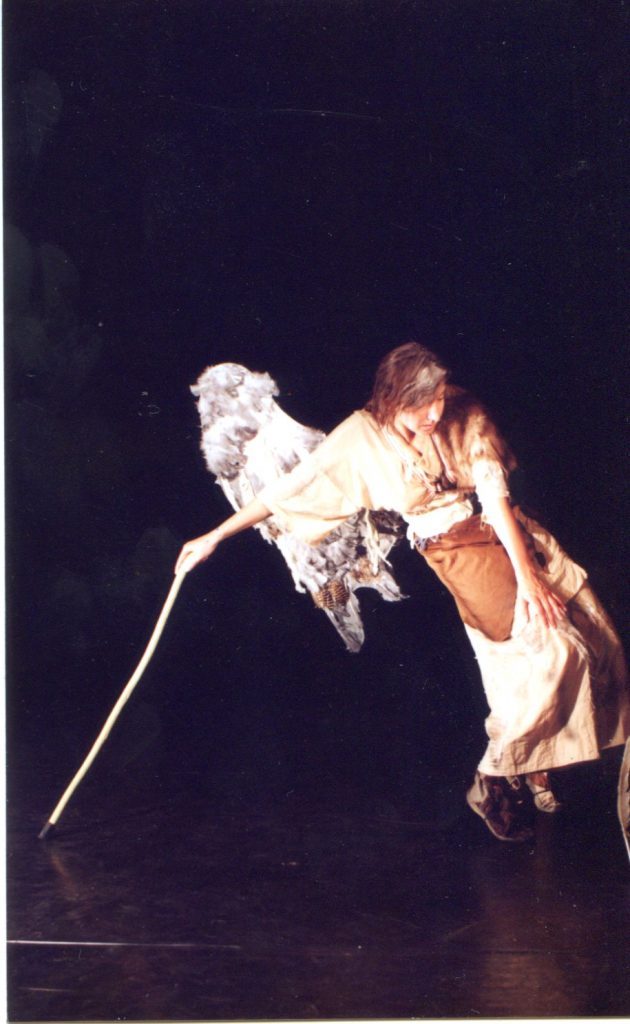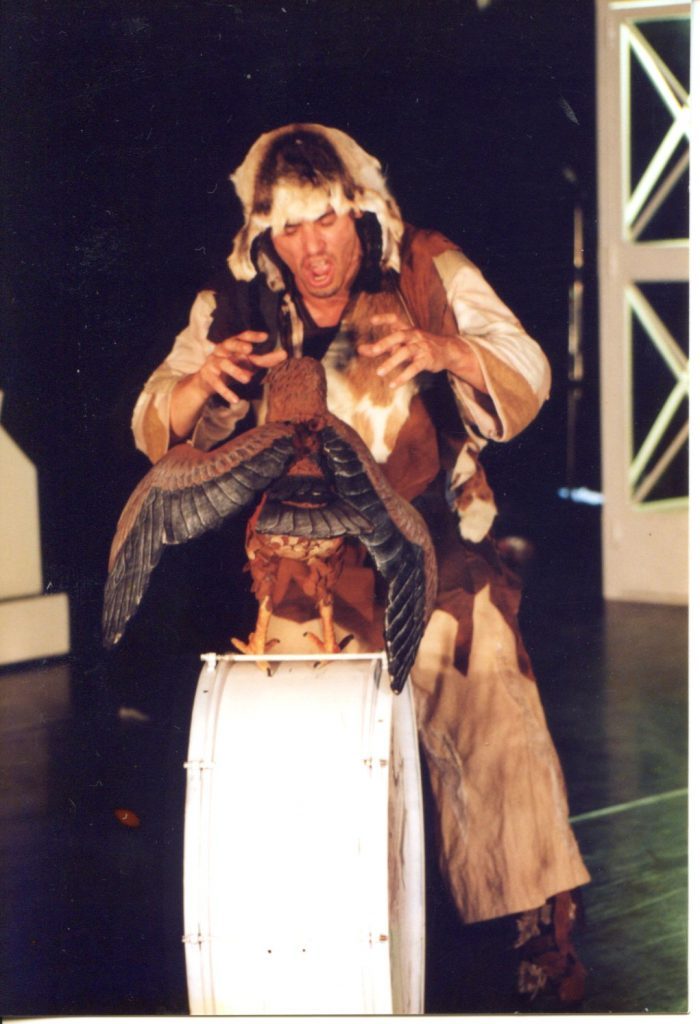Perhaps the most performed show of Artus Theatre, entitled Turul, has created a real scandal. The grotesque dance performance, written and directed by company leader Gábor Goda, was addressed by the then Minister of Culture, Bertalan Andrásfalvy as ”blasphemous”, ”filthy,” and a dishonor to the Hungarian community. Since the regime change, no other dance performance had triggered this strong of a reaction in the highest political circles.
Before Goda’s company could start to panic, Turul had won the Budapest Capital Prize for the Best Alternative Theatre Performance, followed by winning three main prizes at the V. International Experimental Theatre Festival in Cairo.
Artus’ hour-long performance occasionally bearing the title Zápturul („Addle Turul bird”), shows how the (Hungarian) past meets the (Hungarian) present, in a bitter and ironic tone. The three character play, which was performed several dozen times, was perhaps among the most political dance productions of the times, in the age of self-appointed politicians of the Horthy funeral, the ‘neo-traditional-folk-suits and neo-beating-clubs’. The scenes of the ecclesiastical authorities struggling with the shamans, or the transforming bird totem which can be turned into a chicken, or the ancient Hungarians juggling around with their briefcases, all captured something of that era, with exceptional sensitivity and humor. And did so in a way that only very few managed to do even in other art forms.
The main characters of Turul are part of an extremely simplified game. Two of them are dressed in animal skin and sandals, a pair of „land-taking” soldiers, reckless admirers chanting in front of the turul bird figure. Their movements are airy and boisterous, their dance is filled with fumbling grace, a likeable clumsiness. The roads soon come to a fork: the phenomenon – retrospectively – one that alludes to Roberto Benigni, of the brilliant comedian Csaba Méhes, representing the more fragile and cunning hero of the two, changes his clothes. We see him as a missionary priest in a red priestly cloak, the key figure of peaceful transition, who is trying to put an end to the idolatry by taming his companions. The traditionalist played by Goda rebels against him. The conflict between the two is resolved by the other turul admirer who turns into an angel, played by Ildikó Mándy. The dancer stands still, with an enormous single snow-white wing, her gothic figure barely moving.
During the terrific and playful search, full of fine references and hints, our faces turn ever so often into bitter smiles. The fight between the ingenious set and costumes intensifies. The Ancient Hero-Hungarians who drop into the modern world with their briefcases, eventually drown in a telephone booth flooded by clever tricks. They don’t even manage to make the phone call.
Tamás Halász
In: ’Beszélő’ – 1992, Vol. 5., No.3
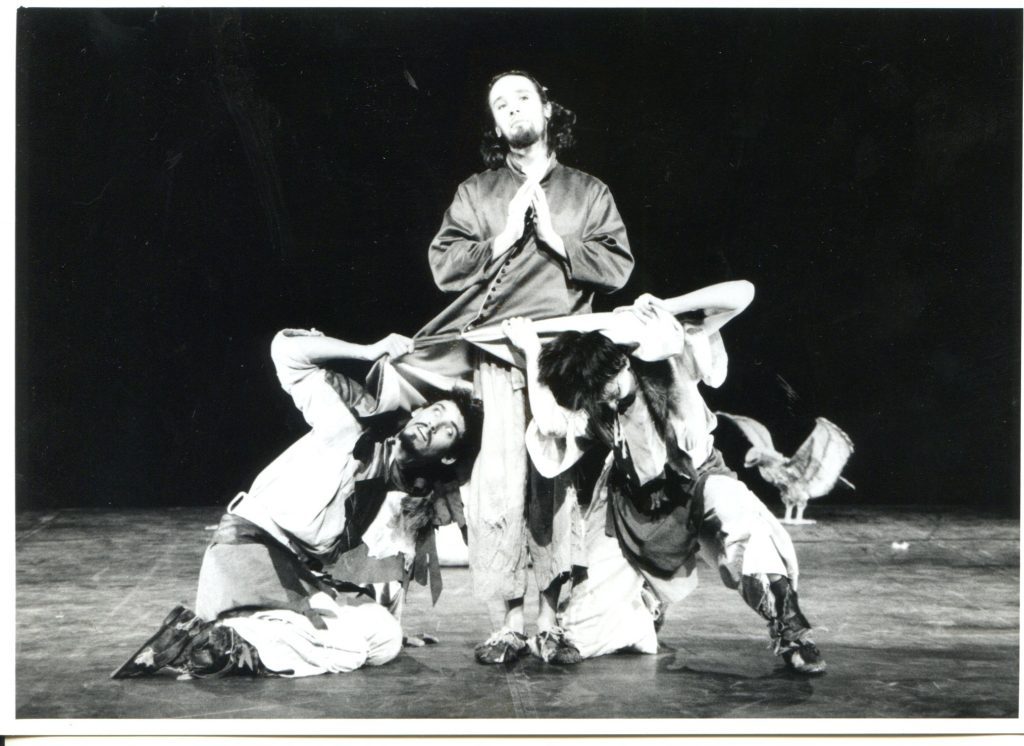
After the fall of the communist regime, the uncontrolled genies of repressed desires and hopes break free from the bottle. The riders of ‘Hungarianism’, Europe idolatry, and religious madness fall into the other extreme.
The performance speaks to the Hungarians and God with a loving humor.
The story: The three Ancient Hero-Hungarians set off from East toward the promising Western Civilization.
The form: grotesque. The
grotesque is a shaman itself.
It connects fear with the desire to tell the truth.
Grotesque is a purely Central European character: we sit on top of the refuse dump and laugh uncontrollably.
“The footprint of the bird shows;
that it visited the Earth,
for it was hungry and so it ate,
then again off it went
rising high in the air.”
In 1992, the performance was addressed as „blasphemous” and ”filthy,” and a dishonor to the Hungarian community by the then Minister of Culture, Bertalan Andrásfalvy. Nevertheless, the theatre professionals and audience had a different opinion. In 1992 the production won the “Best Alternative Theatre Performance of the Year” prize, following which it was awarded the “Best Performance,” “Best Stage Design” and the “Best Male Leading Role” (Csaba Méhes) Prize at the V. International Experimental Theatre Festival in Cairo, in 1993.
PHOTO GALLERY
Reviews in Hungarian language:
Gyenge Z.: A turul tollai
Magyar Nemzet: Magyar siker Kairóban
Élet és irodalom: Magyarok külföldön
Mai nap: Ellenzékek a színházi életben, Karizs Tamás, 1992
Magyar hírlap: Érzések ha testet öltenek – interjú Goda Gáborral
Hazai tükör: A humorban nem ismernek tréfát, Kaán Zsuzsa, 1992
Further documents
When & where…
Texts
Sketches of László Fülöp
Cast
Performers:
MÁNDY Ildikó, GODA Gábor, MÉHES Csaba
Text:
BÁN Zoltán
Composer:
MELIS László
Costume designer:
KERESZTES Zsuzsa
Light designer:
KOCSIS Gábor
Sound designer:
SÓLYOM Tamás
Written & directed by:
GODA Gábor


